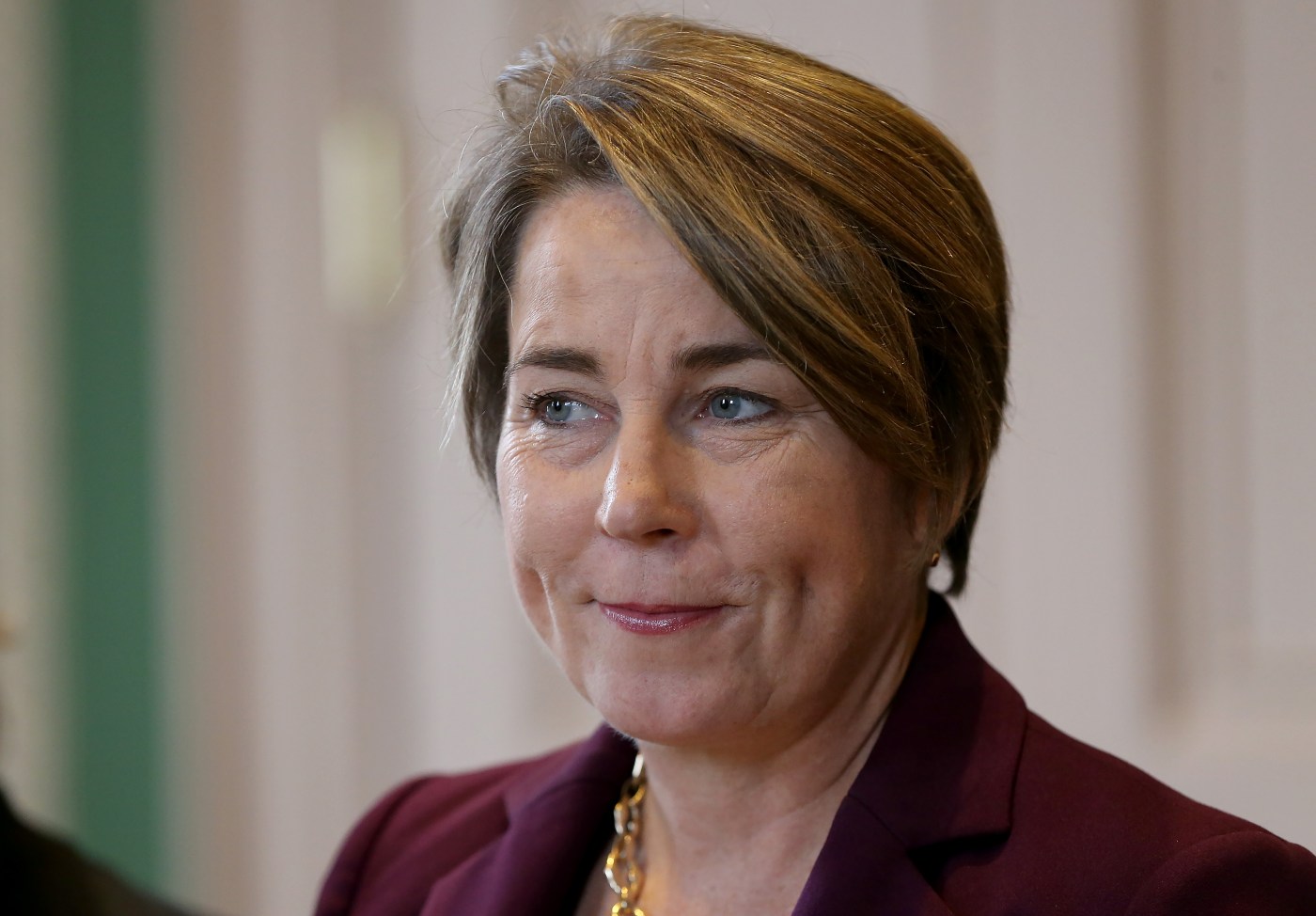
As Massachusetts shelters fill to capacity, Maura Healey says there are ‘a lot of places in the country where people can go’
With the state’s shelter system at or approaching maximum capacity, the governor is suggesting new migrants could consider settling somewhere other than Massachusetts after they cross the U.S. border.
According to Gov. Maura Healey, there are 40 to 50 new families arriving in the state every day and seeking state assistance with housing, and the influx of people to Massachusetts — many without lawful presence in the U.S. — has pushed the state’s shelter system close to its 7,500-family limit.
“We expect to reach it soon,” Healey told WCVB. “We’ve just reached capacity here in terms of the physical space where we can house people, the number of service providers who are out there to provide services, and also the funds to pay for this.”
Healey did not directly say what happens to a family seeking Emergency Assistance shelter after the cap is reached, though she said she hoped it didn’t come to unhoused people sleeping at Logan Airport or in emergency rooms. She also suggested that there are other options available to new U.S. arrivals.
“There are a lot of places in the country where people can go once they cross into the United States,” she said.
According to the most recent information provided by the Executive Office of Housing and Livable Communities, there were 7,423 families living in state-provided shelters as of Thursday, and 17 families enrolled in the shelter system during the preceding 24-hour period. About half of the enrolled families — 3,717 — are housed in local hotels and motels, the rest in “traditional” shelters staffed by contracted providers.
Data due to be released Monday will represent the enrollment count as of last Friday. If Healey’s migrant numbers and the enrollment rate hold to their paces, the shelter system could count as full by Tuesday, with more families arriving daily.
According to rules implemented by the Healey administration as of Nov. 1, the state will house no more than 7,500 families. Additional families will be placed on a waitlist while state officials work to expedite the transition of families currently in state housing into more independent housing situations.
Waitlisted families will be notified when a spot opens in the shelter system. Though nobody in any position of authority has wanted to say it, until that spot opens, families looking for shelter from the state will presumably have to go homeless.
To anyone from outside of the Bay State, this may seem like a normal course of events for down and out families, but a 1983 state law requires Massachusetts to provide shelter for kids and their parents.
Healey’s administration was sued over the plan to cap EA-shelter capacity and implement a wait list, with Boston-based Lawyers for Civil Rights arguing Healey is required to notify the Legislature at least 90 days before changing the shelter law’s eligibility requirements. Lawyers representing Healey’s Office of Housing argued they simply have no money to expand the system beyond 7,500 families.
A Suffolk County Superior Court judge seemed to concur with the practical realities of the situation presented, pointing out that the government doesn’t have the ability to provide housing to everyone, and Healey’s administration doesn’t have funds the Legislature hasn’t given it.
“As much as I wish that I possessed the power to ensure that all families who need housing have it, and that all families who require safe emergency shelter are given it, I am persuaded that it would be inappropriate to order EOHLC to continue providing emergency shelter it does not have the resources appropriated by the Legislature to fund,” Judge Debra Squires-Lee wrote in her ruling.
Healey also previously requested additional funding for emergency shelters, well beyond the $325 million already included for the program in the annual state budget. In a separate bill to close the books last year, Healey asked lawmakers to approve $250 million in funding to cover the surge in shelter use.
Lawmakers haven’t approved that spending, but they at least know why Healey was asking. According to the judge, asking for the money qualifies as “notice” in her book.
“The failure to give notice has not injured plaintiffs where notice is intended to permit the Legislature to act or not act, and the Legislature, having actual notice of the fiscal crisis, has failed to act,” Squires-Lee wrote.
Related Articles
Migrant arrested on Cape Cod convicted of murder in Venezuela
Massachusetts ‘open to time limits’ for families staying in emergency shelters, Healey says
Massachusetts judge rejects attempt to halt emergency shelter cap, handing win to Maura Healey
State housing chief says 13,000 households could enter emergency shelter if the state found enough units
Lawyers spar over Healey’s plan to limit emergency shelter capacity as judge weighs appeal
The immigration problem is a national one and falls under the jurisdiction of the Biden administration, according to the governor, and the solution to the state’s shelter system problem will likely not be solved as long as there is inaction by the federal government on work permits.
“The federal government is allowing people into the United States and my position has been if you are going to allow people in, then work with us states on getting people working. Expedite those work authorizations,” Healey said.
During the week of Nov. 13, officials from the Department of Homeland Security and the Bay State will host a work authorization clinic for eligible migrant families currently living in state-provided housing. The state will arrange appointments and transportation to the clinic, to be held in an as-yet-unnamed location in Middlesex County, while DHS staff help with paperwork.
Healey’s staff did not respond to a request for comment on Sunday.


